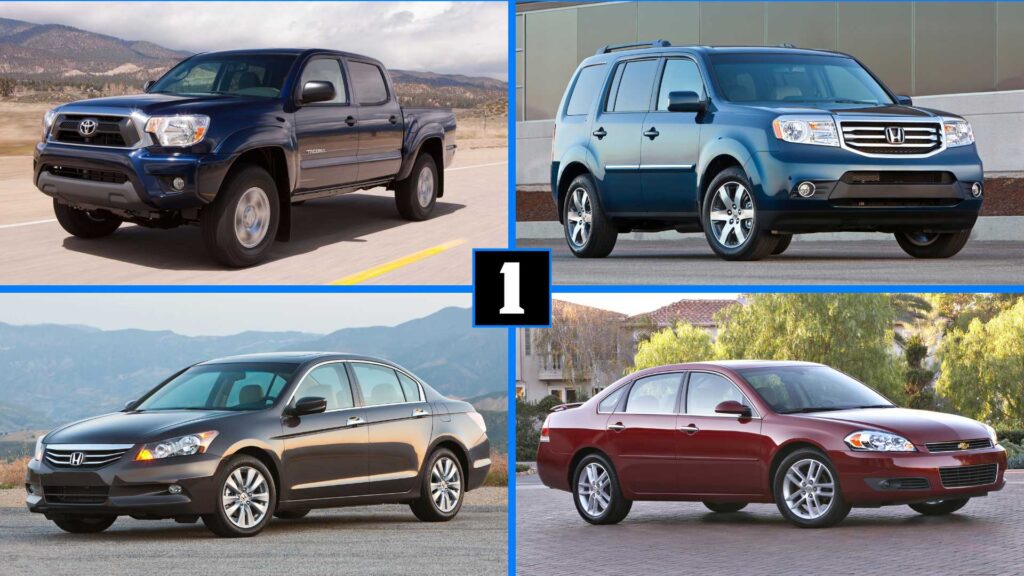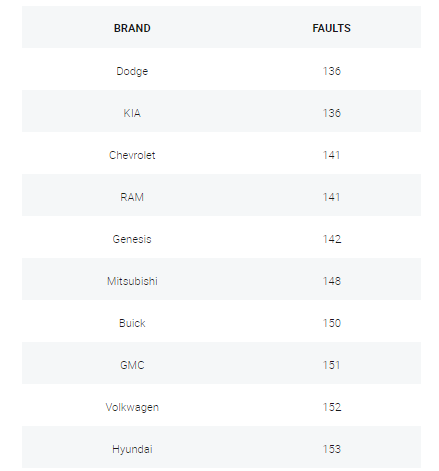In many cases, buying a new vehicle is not an easy task. If we were simply interested in aesthetics, it would be very simple: compare brands and models and, once we have chosen the one that seems most beautiful to us, simply go and buy it.

However, acquiring a new car has many more factors: price, equipment, usability, security, purchasing facilities and, above all, reliability.
Nobody likes that something just bought starts to cause problems in a few days, but much less in the automotive world. But how can we get it right?
Sometimes, finding a vehicle that we like, that is well priced and that does not have breakdowns also has a certain component of luck, because in the end problems can arise due to human failure when assembling the vehicle.
However, the ideal is to pull statistics: taking into account that this type of failure occurs, the ideal is to be able to access a comparison of which vehicles break down the most in the first days of use. And that’s where JP Power has a lot to say.
Every year, the consultancy offers a list of the most and least reliable brands in the first 90 days of use. On this occasion, the consultancy has released its ranking focused on the North American market, where it has analyzed all the brands on the market to discover which ones have the least chance of having a breakdown after leaving the dealership. The most curious of all is that, thanks to this ranking, we also know what type of breakdown is the most common in new vehicles: those related to the connectivity, navigation and Bluetooth systems are the ones that most easily stop working.
Thanks to this information, we can see that the safest brands on the market after putting their product on sale are Dodge and Kia, which have 136 failures in the first 90 days of use for every 100 vehicles sold. It is followed by Chevrolet and RAM, with 141, with Genesis -Hyunda’s luxury firm- being the first premium brand to be found in this ranking, with 142 errors. They are followed by Mitsubishi (148), Buick (150), GMC (151), Volkswagen (152) – the only European in the classification – and Hyundai (153).
On the contrary, that is, the one of the least reliable brands, or rather, with more failures as they leave the dealership, the most outstanding, undoubtedly, is Tesla, with 250 errors for every 100 vehicles during its first 90 days of use . They are followed by Land Rover (228), Audi (225), Volvo (210), Mercedes Benz (202), Jaguar (190), Chrysler (189), Subaru (187), Porsche (186) and Acura, with ( 185). According to this same study, the average of errors of the total of marks is 166, which confirms that the North American and Asian brands are among those with the least problems.
But that is precisely where a question comes into play: why are premium brands so poorly valued? There is a clear answer: the more leading the brand, the higher the level of technology it has and, in many cases, they are exclusive systems that the vast majority of vehicles do not even dream of having as standard. This situation means that a good part of its technology has not been able to be tested by the general public and, therefore, certain errors have not been corrected that, over time, will do so.
Tesla’s case is the best example to consider. The company Elon Musk has had an average of 250 errors per 100 vehicles sold during the first 90 days of use. Obviously, the data is clear: it is the least reliable brand on the market. But it is also necessary to take into account the level of technification that the vehicle has and that, therefore, this type of error can be generated despite it. However, the number of failures could be higher, since the company has not provided data to JP Power in 15 of the American states. A report that allows to have a broader photograph which brands are the best when it comes to buying a new car.















